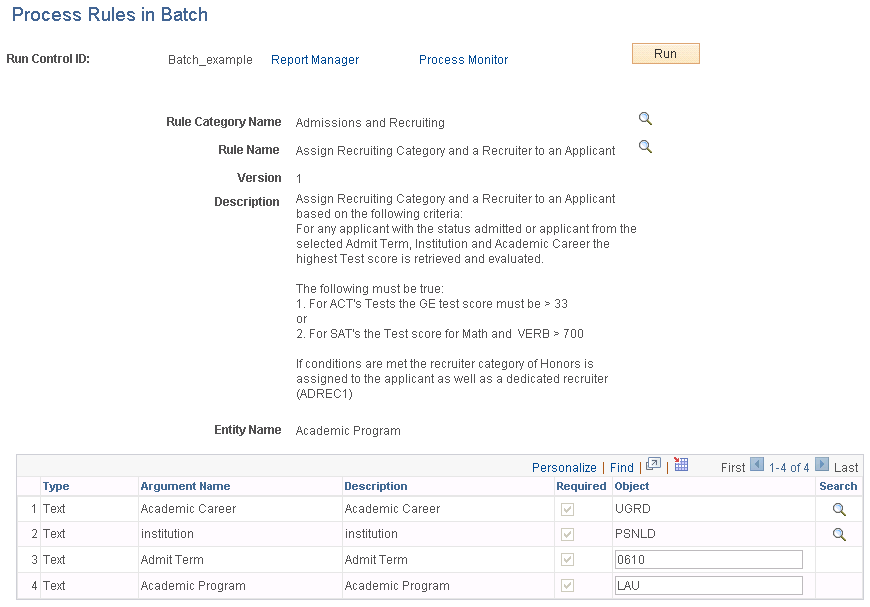Running Rules in Batch
Active Rules can be run in batch. Run Rules as a one off process or scheduled them to run at regular intervals.
|
Page Name |
Definition Name |
Navigation |
Usage |
|---|---|---|---|
|
Process Rules in Batch |
SCC_RULE_RC_BAT |
|
Use this page to run Active Rules in batch. |
Access the Run Rules in Batch page ().
This example illustrates the fields and controls on the Process Rules in Batch page. You can find definitions for the fields and controls later on this page.

Field or Control |
Description |
|---|---|
Rule Category Name |
Select a Rule Category. The Rule Category search is restricted to those for which you are authorized. |
Rule Name |
Select a Rule. Available Rules are filtered using the following criteria:
|
Version |
Displays the version of the selected rule |
Description |
Displays the Description of the Rule, if any. |
Entity Name |
Displays the Base Entity of the Rule, if any. |
Rule Group Name |
Displays the Rule Group Name of the Rule, if any. |
Variables
After selecting a Rule Name, the required variables are displayed in a grid. You must provide an Object input value for each required Variables before running or scheduling a Rule. If LOV prompting has been added to a Variable, the same LOV prompting functionality can be used to provide an Object input for the Variable.
Batch Process Logging
The Rules Engine Batch process generates log files for the Rule and any called Rules or Functions if the Rules and or called Functions have been built using one of these Rules Engine logging levels:
Informational Messages
Trace Logging
Error Messages
Warning Messages
With Trace Logging, three files are generated:
RuleDebugFile – A log file with a transcript of Call Statements, Variable Maps and Contents, and Statements.
RuleEntityPostExecution – An XML file containing a dump of the Entity structure prior to processing.
RuleEntityPreExecution – An XML file containing a dump of the Entity structure after processing. Any updates and or inserts into the system are logged in the XML file.